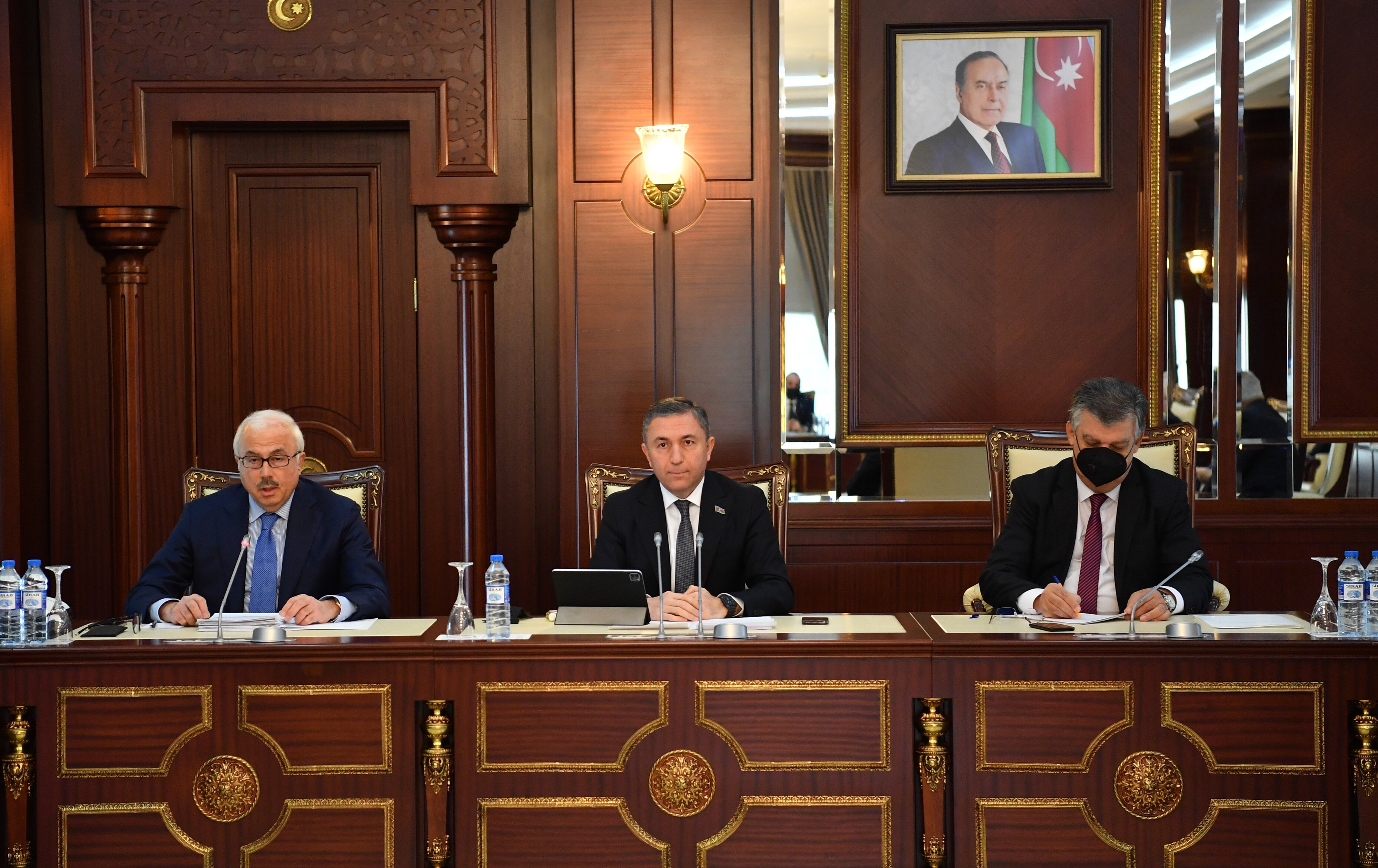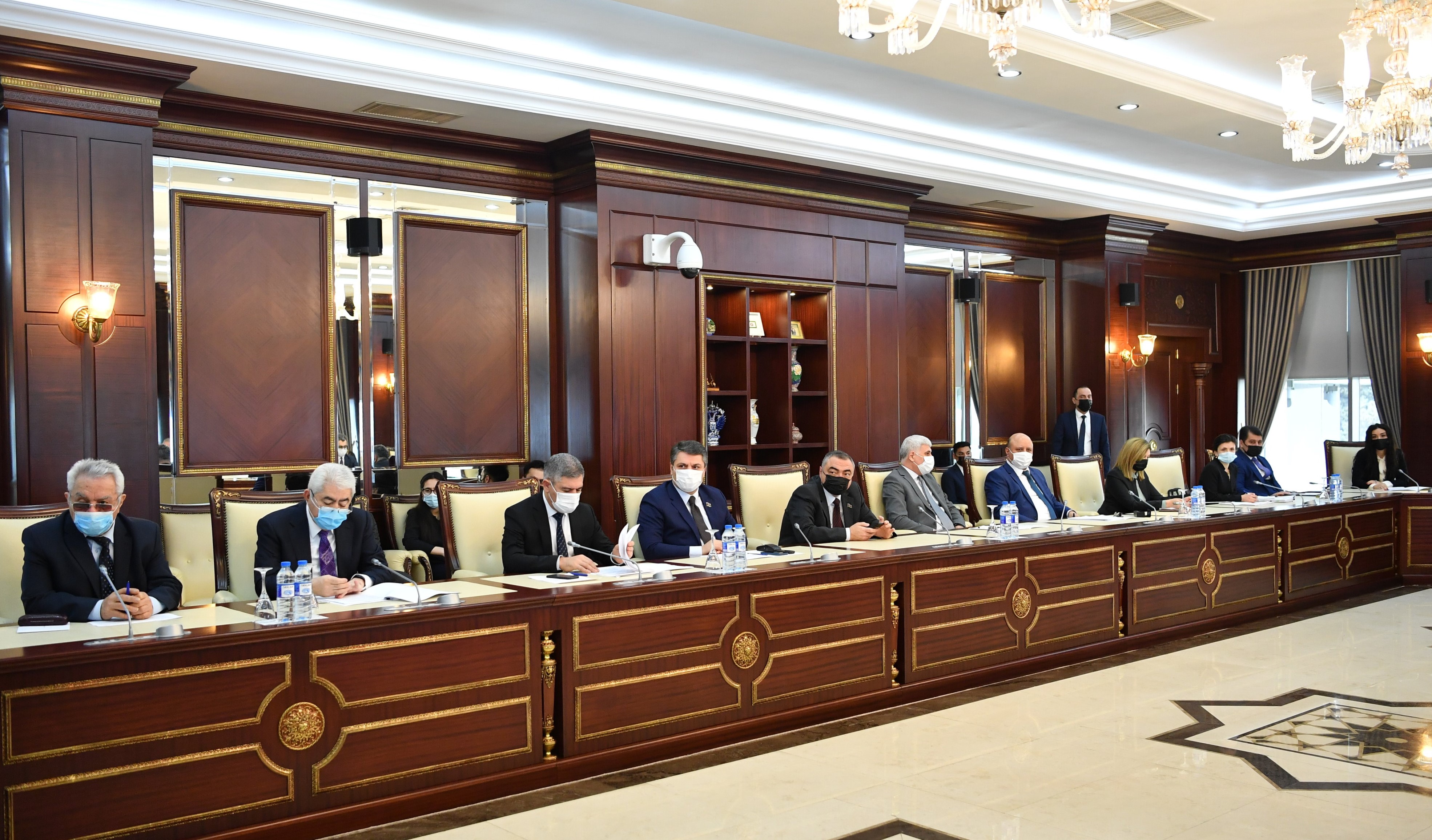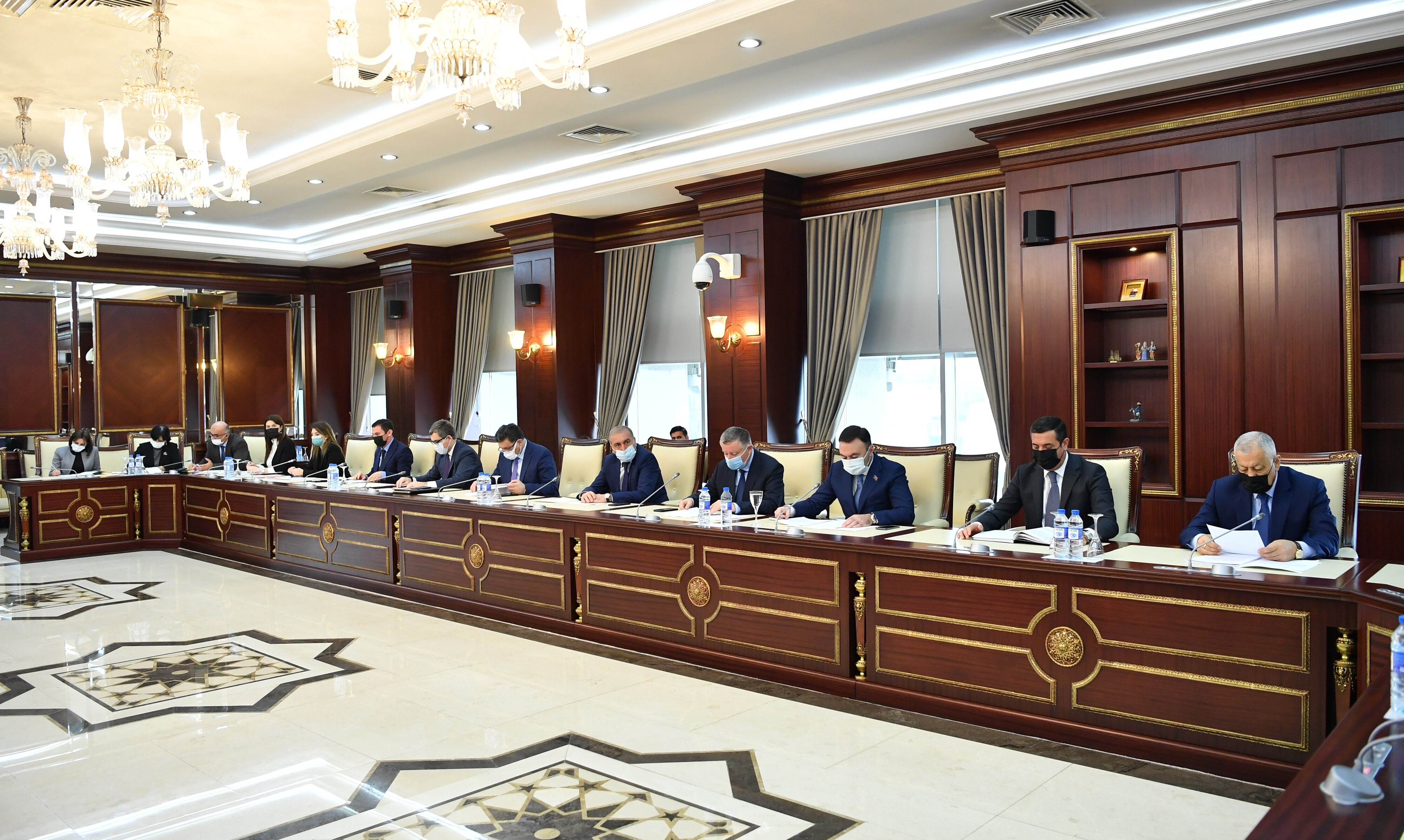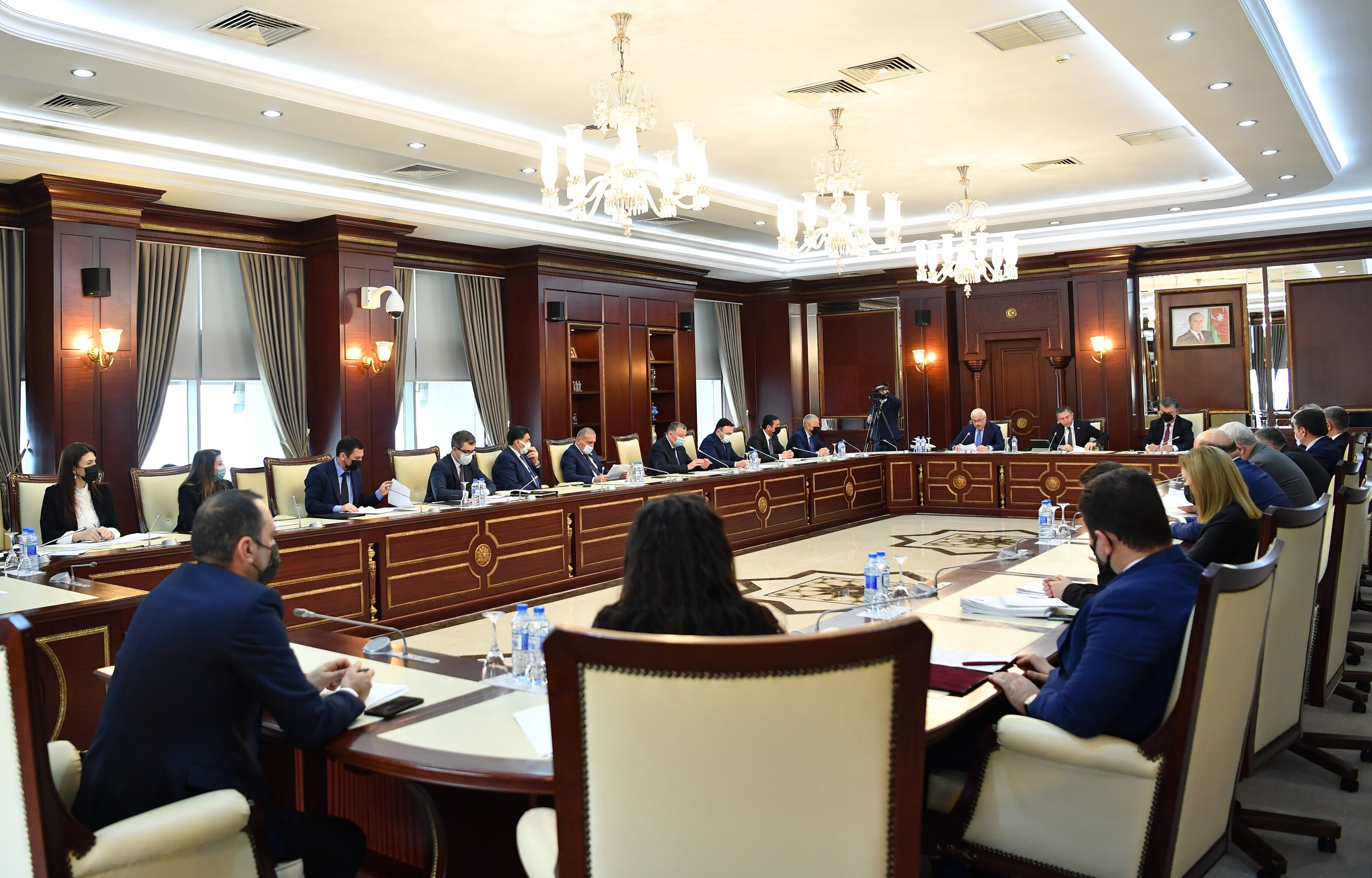A New Investment Operations Law is Drawn Up
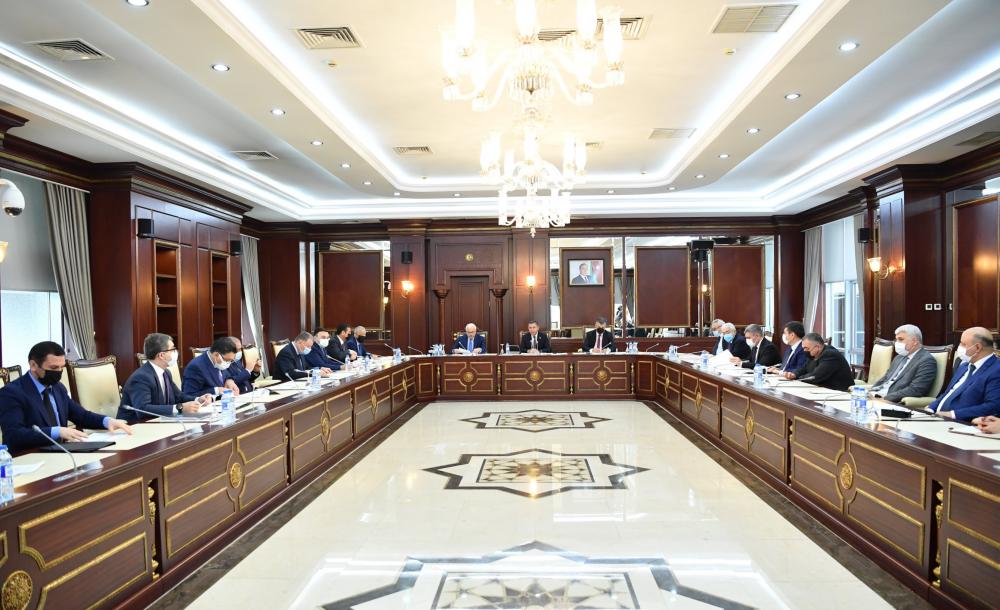
The chairman of the Milli Majlis Economic Policy, Industries and Enterprising Committee Tahir Mirkishili announced a six-item agenda at the committee meeting held on 17 March.
Adoption of the committee was followed with the new Investment Operations Bill which the committee chairman put forward in the first reading, saying that it had been based on the former Investment Operations Law and Overseas Investments Protection Law as instructed in the presidential decree ‘On the Array of Measures to Stimulate Investment Operations and Protect Overseas Investors’ Rights’.
Investments have a tremendous role to play in an economy, according to Mr Mirkishili who went on to disclose the inbound investment indicators for the economy of Azerbaijan as a country that stands out in the region for its investor appeal. The national economy has undergone dramatic structural and content-wise changes of late; the new challenges, besides, have added to the import of new rules and other regulatory vehicles. This is why the Bill brought to the attention of the meeting participants happens to be so very important. As well as that, it is a frameworks document whilst also heralding a substantial step about to be taken forward in improving the economy structurally, bettering the business environment and increasing the investment attractiveness, according to Mr Mirkishili.
The deputy minister of economy Niyazi Safarov then remarked as he was commenting the Bill that improvement of the business and investment environments continually in the general context of the national economy is one of the paramount tasks set before the development strategy being carried into life under the guidance of President Ilham Aliyev. The new Investment Operations Bill is key in raising local and overseas investments and is also consistent with the objectives of the Azerbaijan 2030: the National Socio-Economic Development Priorities document enacted with a presidential decree.
Elaborating further, Mr Safarov laid down the findings of the analytical study done on the effective investment legislation, gave arguments in favour of the pertinence of the new piece of legislation and of passing it into law and, next, told the meeting participants about the stipulated means to improve the investment climate, make it more attractive and, last but not least, to protect investments. The deputy minister also commented on the anticipated advantages of the future law.
Deliberations followed. Tahir Mirkishili, his deputy Ali Masimli and the MPs on the committee Mashhur Mammadov, Vahid Ahmadov, Ziyad Samadzade, Elnur Allahverdiyev, Mahir Abbaszade, Igbal Mammadov, Rufat Guliyev, Mazahir Efendiyev, Vugar Bayramov and Aydin Huseynov commented on the Bill and underlined the importance of its working mechanism. Also, the MPs touched on the significance of investment and property protection, raised the issues of promoting free competition parallel to achieving and maintaining investment attractiveness and stressed the necessity of research and labour-intensive investments. Opinions and questions were sounded as to the notions used in the document as well as concerning its provisions.
Niyazi Safarov and the AZPROMO vice president Yusif Abdullayev gave the MPs the necessary explanations and answered their questions.
The committee recommended eventually that the new Investments Operations Bill should be brought before the plenum of the Milli Majlis in the first reading.
Tahir Mirkishili moved on to the second item on the agenda, which was the set of second-reading amendments to the State Duty Law, drawn up to define state duties in line with the new classification of audio-visual media subjects as per the effective Media Law. Mr Mirkishili emphasised the intended tenfold cut of the national television fee.
The third item on the agenda was a package of second-reading amendments to the Licences and Permits Law, too, put together for unification with the new classification of audio-visual media subjects in the above-said Media Law.
As regards the second reading of the amendments to the State Property Privatisation Law, Tahir Mirkishili said whilst presenting them that the idea there was to put on yet more spending targets for the state privatisation returns that are transferred to the account of the state authority selling that property to private owners.
The second-reading amendments to the Anti-Monopoly Activities Law, the Food Products Law and the State Secret Law, it was said about them that their emergence had been brought about by the need to carry out terminology modification in legislation due to the establishment of the State Reserves Agency of the Azerbaijan Republic.
It was recommended following a discussion to table the Bill in the second reading at a Milli Majlis plenum.
Going further, the committee looked at the Bill devised to dismantle the law that had ratified the inter-governmental treaties of the Azerbaijan and Georgian Republics ‘On Co-operation in Standardisation, Metrology and Compliance Appraisal’ and ‘On Co-operation in Standardisation, Metrology and Certification’. The Bill would repeal the relevant co-operation deed concluded with Georgia and ratified with the law No 268-IQ dated 15 April 1997, and would, at the same time, ratify the new co-operation accord that was signed on 29 September 2021.
Again, having reviewed the Bill, the MPs recommended that it should be tabled at a plenum of the Milli Majlis.
MP Agalar Valiyev, the Economy Ministry’s deputy head of the state investments department Eynulla Lazimov, deputy head of the macro-economic prognostics and analyses department Anar Hasanli and head of the department for inter-governmental commissions and bilateral documents Gultekin Mirzayeva as well as employees of the specialists departments of the Milli Majlis Staff took part in the committee meeting as well.
The Press and Public Relations Department
The Milli Majlis



